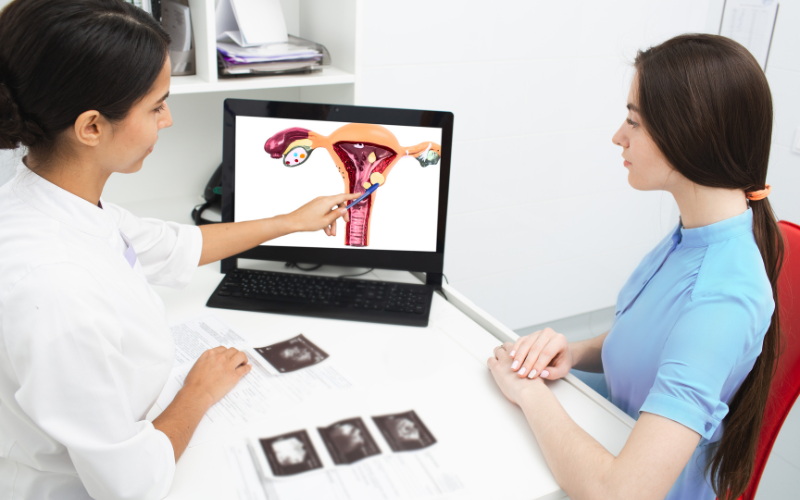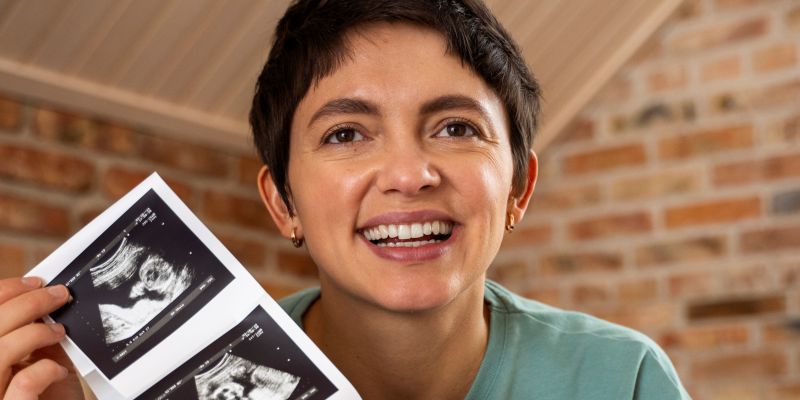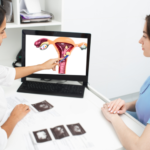
A Guide to Understanding and Treating Uterine Fibroids

Author - Dr. Jainesh Doctor MBBS, MS (Obgyn), FMAS
Consultant - Advanced Gynaecological Endoscopic Surgeon at Motherhood Hospital Kharghar, Mumbai
What Are Uterine Fibroids?
Uterine fibroids are common non-cancerous growths that develop in the uterus. They are often asymptomatic and can go unnoticed, but when they do cause symptoms, they can have a significant impact on a woman's life. This is particularly true during pregnancy, where the presence of fibroids can complicate the pregnancy and put the health of both the mother and the baby at risk.
Motherhood India Hospitals are equipped to handle all aspects of pregnancy, including the management of uterine fibroids. Our hospitals have a team of experts, including gynecologists and obstetricians, who are well-versed in the latest diagnostic and therapeutic techniques for the management of fibroids in pregnancy.
Symptoms & Diagnosis of Uterine Fibroids
Some of the symptoms of uterine fibroids during pregnancy may include:
- Heavy or prolonged menstrual bleeding: Fibroids can cause heavy or prolonged menstrual bleeding, which can be particularly noticeable during pregnancy.
- Abdominal pain or pressure: Fibroids can cause abdominal pain or pressure, which may be exacerbated by the growing uterus during pregnancy.
- Urinary frequency or incontinence: As fibroids grow, they can put pressure on the bladder, causing frequent urination or incontinence.
- Constipation: Fibroids can also put pressure on the rectum and cause constipation.
- Miscarriage or preterm labor: In some cases, fibroids can increase the risk of miscarriage or preterm labor.
- Enlarged uterus: An enlarged uterus may be a sign of fibroids.
- Difficulty becoming pregnant: Fibroids can cause infertility in some women.
Diagnosis of fibroids in pregnancy is typically made using ultrasound or MRI scans. Once the diagnosis is made, the next step is to determine the size, location, and number of fibroids. This information is critical in determining the best course of action for the mother and her baby.
Treatment Of Uterine Fibroids
There is no cure for uterine fibroids, but there are several treatment options available to manage the symptoms and reduce their impact on a woman's life. The appropriate treatment will depend on a variety of factors, including the size and location of the fibroids, the severity of the symptoms, and the woman's age, overall health, and plans for future pregnancy.
Here are some of the common treatments for uterine fibroids:
- Medications: Hormonal medications, such as birth control pills or gonadotropin-releasing hormone (GnRH) agonists, can help to manage symptoms such as heavy bleeding and reduce the size of fibroids.
- Uterine Artery Embolization (UAE): UAE is a minimally invasive procedure that cuts off the blood supply to the fibroids, causing them to shrink.
- Myomectomy: Myomectomy is a surgical procedure that removes the fibroids from the uterus, preserving the uterus and allowing for future pregnancy if desired.
- Hysterectomy: Hysterectomy is a surgical procedure that removes the uterus and is typically recommended as a last resort for women who no longer wish to have children and have debilitating symptoms from the fibroids.
- Magnetic Resonance-guided Focused Ultrasound (MRgFUS): MRgFUS is a non-invasive procedure that uses high-intensity focused ultrasound to destroy the fibroids.
In some cases, fibroids can be managed conservatively during pregnancy, with close monitoring and observation. This may involve regular prenatal visits, ultrasound scans, and bed rest. However, if the fibroids are causing significant symptoms, such as heavy bleeding, pain, or affecting the growth and development of the baby, then intervention may be necessary.
If you’re looking for the right doctor for treatment, Dr. Jainesh is a highly respected gynecologist and obstetrician from Motherhood Hospital, Kharghar, Navi Mumbai with expertise in the diagnosis and treatment of uterine fibroids. He has a passion for helping women overcome the symptoms of fibroids and has helped countless women to manage their fibroids and regain their quality of life. Dr. Jainesh has extensive experience in both surgical and non-surgical treatments for uterine fibroids, including myomectomy, uterine artery embolization, and magnetic resonance-guided focused ultrasound. With a commitment to providing individualized, patient-centered care, Dr. Jainesh takes the time to listen to each woman's concerns, answer her questions, and develop a customized treatment plan that is right for her.
In conclusion, uterine fibroids are common during pregnancy and can have significant impacts on the health of both the mother and the baby. Motherhood hospitals in India have the expertise and resources to manage fibroids in pregnancy and provide women with the best possible care and support during this critical time. If you are pregnant and have been diagnosed with fibroids, it is important to discuss your options with your doctor and choose a treatment plan that is right for you and your baby.
FAQ’s
What are the symptoms of fibroid in the uterus?
Common symptoms of uterine fibroids include heavy or prolonged menstrual periods, pain during sex, pelvic pressure or pain, frequent urination, and constipation. Some women may experience no symptoms at all.
What is the main cause of fibroids?
The exact cause of uterine fibroids is unknown, but they are believed to be related to hormonal imbalances, particularly the increase in estrogen levels. Genetics, obesity, and certain lifestyle factors may also play a role in the development of fibroids.
What is the best treatment for uterine fibroids?
The best treatment for uterine fibroids depends on several factors, including the size and location of the fibroids, the severity of symptoms, and the woman's age, overall health, and plans for future pregnancy. Options for treatment include hormonal medications, uterine artery embolization, myomectomy, hysterectomy, and magnetic resonance-guided focused ultrasound. To know more about treatment options, connect with Motherhood Hospitals on 𝟭𝟴𝟬𝟬 𝟭𝟬𝟴 𝟴𝟬𝟬𝟴 or book an appointment by going here.
Can uterine fibroids come back after being removed?
In some cases, fibroids may grow back after they have been removed. This is more likely to occur if the fibroids were large or if multiple fibroids were present.
Are fibroids cancerous?
Uterine fibroids are noncancerous (benign) growths. They may cause symptoms that impact a woman's quality of life, but they do not become cancerous or spread to other parts of the body.
At Motherhood Hospitals, we have a team of experienced super specialists backed by the latest in infrastructure and facilities. We have the best Gynaecologist specialists in Kharghar, Mumbai. We are experts in handling complex deliveries, gynaecological, and other surgeries including a range of laparoscopic surgeries. Do take an appointment with the best Gynaecology hospital in Kharghar, Mumbai at a centre closest to you. Meet with our doctors who will carry out the required investigations, diagnose the issue and recommend the most appropriate treatment, enabling you to lead an active life.
If you wish to get in touch with Dr. Jainesh Doctor, please book your appointment here.
Related Blogs

Understanding Gestational Diabetes: Insights from Dr Shruthi Kalagara
Read More
Urinary Tract Infection (UTI) in Pregnancy
Read More
Early Pregnancy Care for New Pregnant Women: Expert Advice | Motherhood Hospitals
Read More
Body Positivity Tips Post C Section (Cesarean Delivery)
Read More
Vaginoplasty: Procedure, Cost, Risks & Benefits, Recovery
Read More
The Digital Dilemma: Exploring the Medical Implications of Technology on Child Development
Read More
How To Relieve Menstrual Cramps? - 8 Simple Tips
Read More
Benefits of Consuming Folic Acid Tablets For Pregnancy/During Pregnancy
Read More
Navigating Radiology: Ensuring Safe Imaging During Pregnancy
Read More
Navigating Radiological Tests During Pregnancy: Ensuring Safety for Mother and Child
Read MoreRequest A Call Back
Leave a Comment:
View Comments
Previous
Next
HELLO,
Stay update don our latest packages, offer, news, new launches, and more. Enter your email to subscribe to our news letter


 Toll Free Number
Toll Free Number








No comment yet, add your voice below!